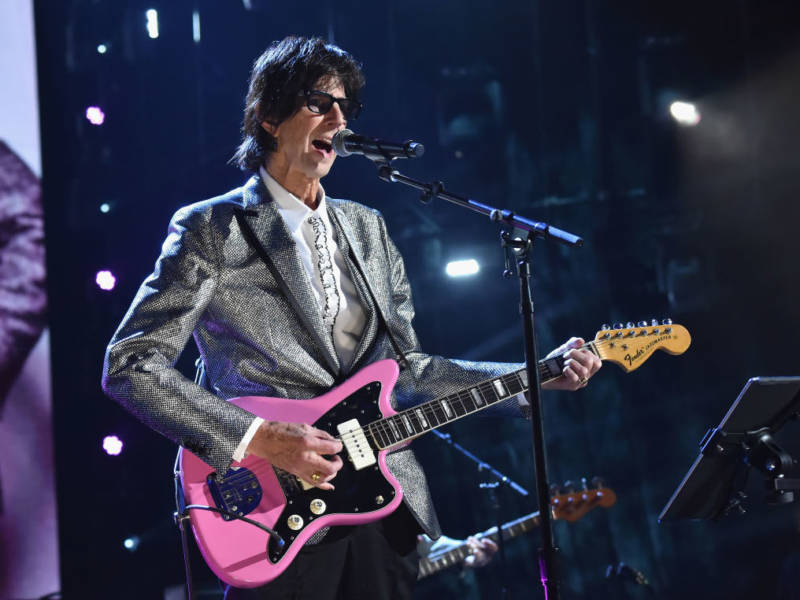Ocasek — The Cars’ lead singer, guitarist and songwriter — was born in Baltimore (as Richard Otcasek) and raised in Cleveland. He co-founded the group with Benjamin Orr, a bassist and vocalist with whom he had begun playing in Ohio. The two began traveling as a duo before landing in Boston. The Cars came together in 1976 with three other musicians: guitarist Elliot Easton, keyboard player Greg Hawkes and drummer David Robinson.
Within a year, the group was signed to Elektra. During the initial wave of publicity for their eponymous debut album, then-Rolling Stone critic Jon Pareles predicted the band’s lasting appeal. He wrote: “Everybody liked it: New Wavers recognized Ocasek’s Velvet Underground debts and the cunning ambivalence of his lyrics, while rock fans and radio programmers picked up on the catchy tunes and meticulous arrangements.”
Several cuts from The Cars became instant radio staples, including “Just What I Needed,” “Good Times Roll,” “My Best Friend’s Girl” and “You’re All I’ve Got Tonight.” Each of the group’s next four albums emerged as huge commercial successes as well.
But even at its most Top 40-friendly, The Cars wove offbeat, New Wave elements into its sound and look that were a perfect match for the MTV age, such as in 1984’s “You Might Think,” which won the first-ever Video of the Year honor at the MTV Video Music Awards.
Ocasek also worked in A&R and produced work by New Wave-era peers like Suicide and Romeo Void. The Cars broke up in 1988, but Ocasek’s influence in rock extended well beyond the apex of the group’s career. In addition to releasing half a dozen solo albums, he worked as a producer for leading bands of a younger generation, including Weezer, No Doubt, Guided by Voices and Bad Religion. Orr died of pancreatic cancer in 2000, but in 2011, the surviving members of The Cars reunited and released a new album, Move Like This.


